Adnan Anwar
Empathic Responding for Digital Interpersonal Emotion Regulation via Content Recommendation
Aug 05, 2024



Abstract:Interpersonal communication plays a key role in managing people's emotions, especially on digital platforms. Studies have shown that people use social media and consume online content to regulate their emotions and find support for rest and recovery. However, these platforms are not designed for emotion regulation, which limits their effectiveness in this regard. To address this issue, we propose an approach to enhance Interpersonal Emotion Regulation (IER) on online platforms through content recommendation. The objective is to empower users to regulate their emotions while actively or passively engaging in online platforms by crafting media content that aligns with IER strategies, particularly empathic responding. The proposed recommendation system is expected to blend system-initiated and user-initiated emotion regulation, paving the way for real-time IER practices on digital media platforms. To assess the efficacy of this approach, a mixed-method research design is used, including the analysis of text-based social media data and a user survey. Digital applications has served as facilitators in this process, given the widespread recognition of digital media applications for Digital Emotion Regulation (DER). The study collects 37.5K instances of user posts and interactions on Reddit over a year to design a Contextual Multi-Armed Bandits (CMAB) based recommendation system using features from user activity and preferences. The experimentation shows that the empathic recommendations generated by the proposed recommendation system are preferred by users over widely accepted ER strategies such as distraction and avoidance.
Enhancing Cognitive Workload Classification Using Integrated LSTM Layers and CNNs for fNIRS Data Analysis
Jul 22, 2024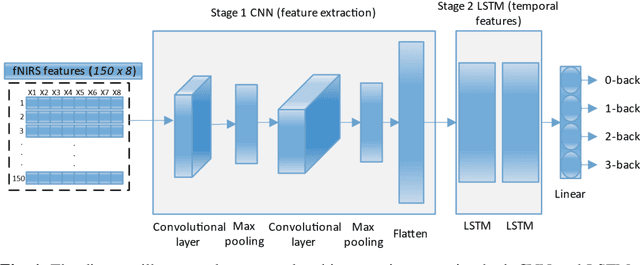

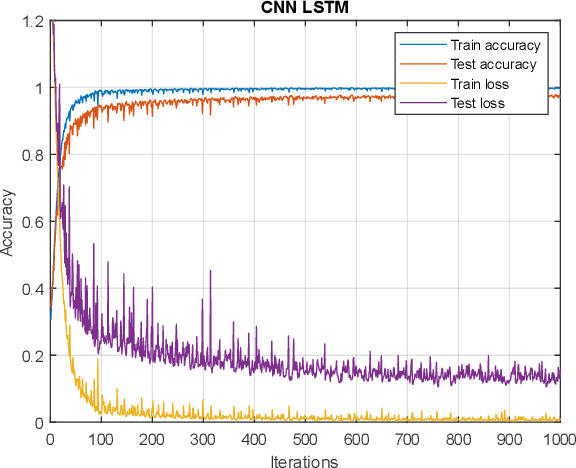

Abstract:Functional near-infrared spectroscopy (fNIRS) is employed as a non-invasive method to monitor functional brain activation by capturing changes in the concentrations of oxygenated haemoglobin (HbO) and deoxygenated haemo-globin (HbR). Various machine learning classification techniques have been utilized to distinguish cognitive states. However, conventional machine learning methods, although simpler to implement, undergo a complex pre-processing phase before network training and demonstrate reduced accuracy due to inadequate data preprocessing. Additionally, previous research in cog-nitive load assessment using fNIRS has predominantly focused on differ-sizeentiating between two levels of mental workload. These studies mainly aim to classify low and high levels of cognitive load or distinguish between easy and difficult tasks. To address these limitations associated with conven-tional methods, this paper conducts a comprehensive exploration of the im-pact of Long Short-Term Memory (LSTM) layers on the effectiveness of Convolutional Neural Networks (CNNs) within deep learning models. This is to address the issues related to spatial features overfitting and lack of tem-poral dependencies in CNN in the previous studies. By integrating LSTM layers, the model can capture temporal dependencies in the fNIRS data, al-lowing for a more comprehensive understanding of cognitive states. The primary objective is to assess how incorporating LSTM layers enhances the performance of CNNs. The experimental results presented in this paper demonstrate that the integration of LSTM layers with Convolutional layers results in an increase in the accuracy of deep learning models from 97.40% to 97.92%.
Decentralized Federated Anomaly Detection in Smart Grids: A P2P Gossip Approach
Jul 20, 2024Abstract:The increasing security and privacy concerns in the Smart Grid sector have led to a significant demand for robust intrusion detection systems within critical smart grid infrastructure. To address the challenges posed by privacy preservation and decentralized power system zones with distinct data ownership, Federated Learning (FL) has emerged as a promising privacy-preserving solution which facilitates collaborative training of attack detection models without necessitating the sharing of raw data. However, FL presents several implementation limitations in the power system domain due to its heavy reliance on a centralized aggregator and the risks of privacy leakage during model update transmission. To overcome these technical bottlenecks, this paper introduces a novel decentralized federated anomaly detection scheme based on two main gossip protocols namely Random Walk and Epidemic. Our findings indicate that the Random Walk protocol exhibits superior performance compared to the Epidemic protocol, highlighting its efficacy in decentralized federated learning environments. Experimental validation of the proposed framework utilizing publicly available industrial control systems datasets demonstrates superior attack detection accuracy while safeguarding data confidentiality and mitigating the impact of communication latency and stragglers. Furthermore, our approach yields a notable 35% improvement in training time compared to conventional FL, underscoring the efficacy and robustness of our decentralized learning method.
Digital Emotion Regulation on Social Media
Jul 25, 2023


Abstract:Emotion regulation is the process of consciously altering one's affective state, that is the underlying emotional state such as happiness, confidence, guilt, anger etc. The ability to effectively regulate emotions is necessary for functioning efficiently in everyday life. Today, the pervasiveness of digital technology is being purposefully employed to modify our affective states, a process known as digital emotion regulation. Understanding digital emotion regulation can help support the rise of ethical technology design, development, and deployment. This article presents an overview of digital emotion regulation in social media applications, as well as a synthesis of recent research on emotion regulation interventions for social media. We share our findings from analysing state-of-the-art literature on how different social media applications are utilised at different stages in the process of emotion regulation.
FedDiSC: A Computation-efficient Federated Learning Framework for Power Systems Disturbance and Cyber Attack Discrimination
Apr 07, 2023



Abstract:With the growing concern about the security and privacy of smart grid systems, cyberattacks on critical power grid components, such as state estimation, have proven to be one of the top-priority cyber-related issues and have received significant attention in recent years. However, cyberattack detection in smart grids now faces new challenges, including privacy preservation and decentralized power zones with strategic data owners. To address these technical bottlenecks, this paper proposes a novel Federated Learning-based privacy-preserving and communication-efficient attack detection framework, known as FedDiSC, that enables Discrimination between power System disturbances and Cyberattacks. Specifically, we first propose a Federated Learning approach to enable Supervisory Control and Data Acquisition subsystems of decentralized power grid zones to collaboratively train an attack detection model without sharing sensitive power related data. Secondly, we put forward a representation learning-based Deep Auto-Encoder network to accurately detect power system and cybersecurity anomalies. Lastly, to adapt our proposed framework to the timeliness of real-world cyberattack detection in SGs, we leverage the use of a gradient privacy-preserving quantization scheme known as DP-SIGNSGD to improve its communication efficiency. Extensive simulations of the proposed framework on publicly available Industrial Control Systems datasets demonstrate that the proposed framework can achieve superior detection accuracy while preserving the privacy of sensitive power grid related information. Furthermore, we find that the gradient quantization scheme utilized improves communication efficiency by 40% when compared to a traditional federated learning approach without gradient quantization which suggests suitability in a real-world scenario.
FeDiSa: A Semi-asynchronous Federated Learning Framework for Power System Fault and Cyberattack Discrimination
Mar 28, 2023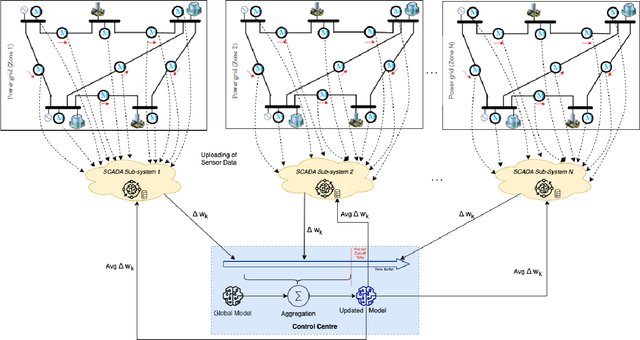

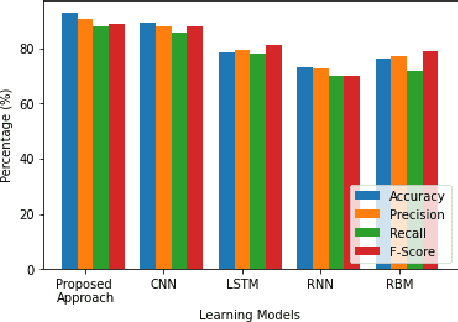
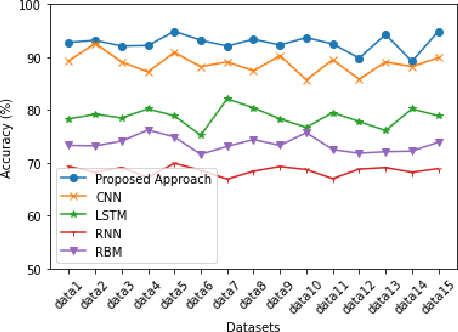
Abstract:With growing security and privacy concerns in the Smart Grid domain, intrusion detection on critical energy infrastructure has become a high priority in recent years. To remedy the challenges of privacy preservation and decentralized power zones with strategic data owners, Federated Learning (FL) has contemporarily surfaced as a viable privacy-preserving alternative which enables collaborative training of attack detection models without requiring the sharing of raw data. To address some of the technical challenges associated with conventional synchronous FL, this paper proposes FeDiSa, a novel Semi-asynchronous Federated learning framework for power system faults and cyberattack Discrimination which takes into account communication latency and stragglers. Specifically, we propose a collaborative training of deep auto-encoder by Supervisory Control and Data Acquisition sub-systems which upload their local model updates to a control centre, which then perform a semi-asynchronous model aggregation for a new global model parameters based on a buffer system and a preset cut-off time. Experiments on the proposed framework using publicly available industrial control systems datasets reveal superior attack detection accuracy whilst preserving data confidentiality and minimizing the adverse effects of communication latency and stragglers. Furthermore, we see a 35% improvement in training time, thus validating the robustness of our proposed method.
A Secure Federated Learning Framework for Residential Short Term Load Forecasting
Sep 29, 2022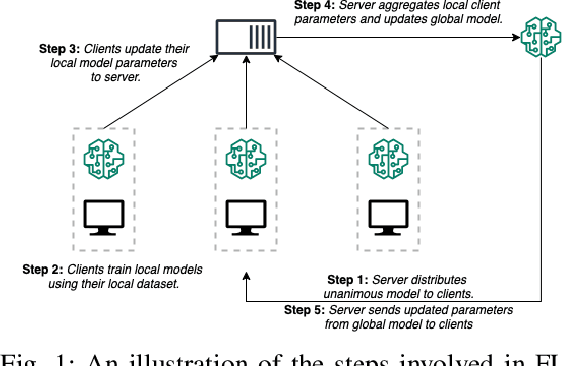
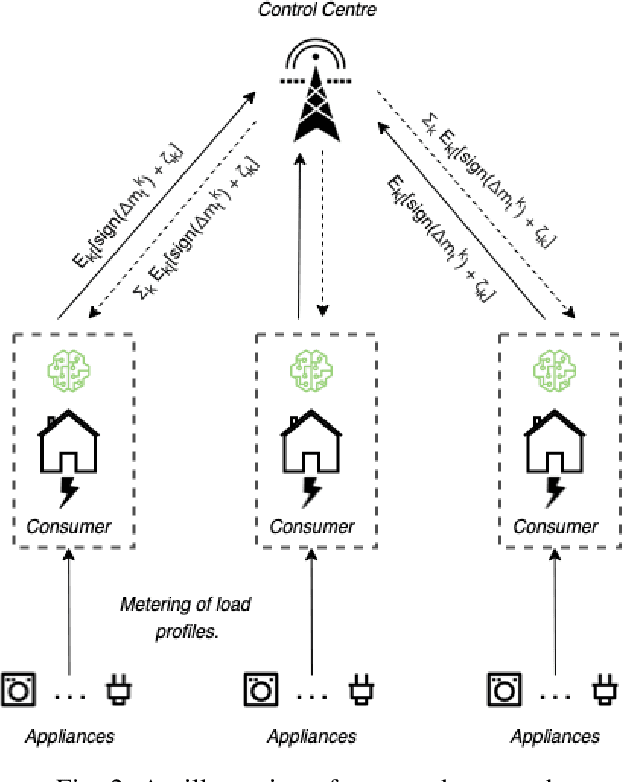
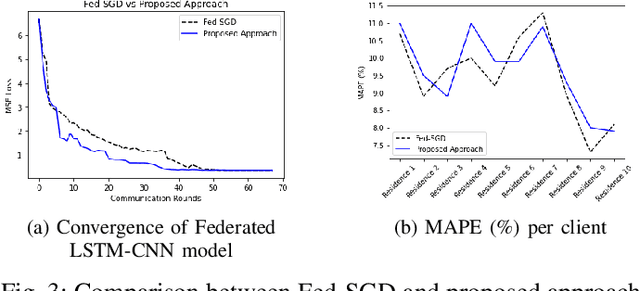

Abstract:Smart meter measurements, though critical for accurate demand forecasting, face several drawbacks including consumers' privacy, data breach issues, to name a few. Recent literature has explored Federated Learning (FL) as a promising privacy-preserving machine learning alternative which enables collaborative learning of a model without exposing private raw data for short term load forecasting. Despite its virtue, standard FL is still vulnerable to an intractable cyber threat known as Byzantine attack carried out by faulty and/or malicious clients. Therefore, to improve the robustness of federated short-term load forecasting against Byzantine threats, we develop a state-of-the-art differentially private secured FL-based framework that ensures the privacy of the individual smart meter's data while protect the security of FL models and architecture. Our proposed framework leverages the idea of gradient quantization through the Sign Stochastic Gradient Descent (SignSGD) algorithm, where the clients only transmit the `sign' of the gradient to the control centre after local model training. As we highlight through our experiments involving benchmark neural networks with a set of Byzantine attack models, our proposed approach mitigates such threats quite effectively and thus outperforms conventional Fed-SGD models.
Dependable Intrusion Detection System for IoT: A Deep Transfer Learning-based Approach
Apr 11, 2022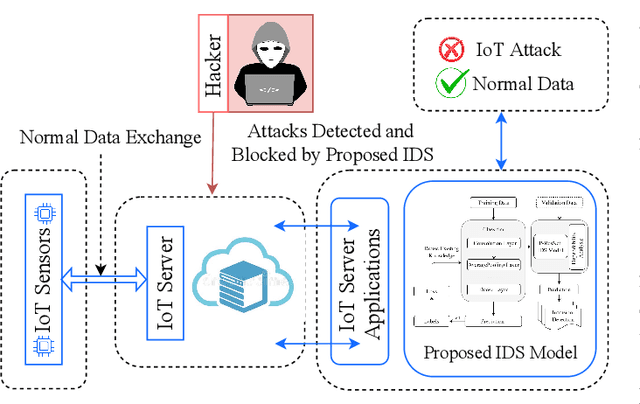
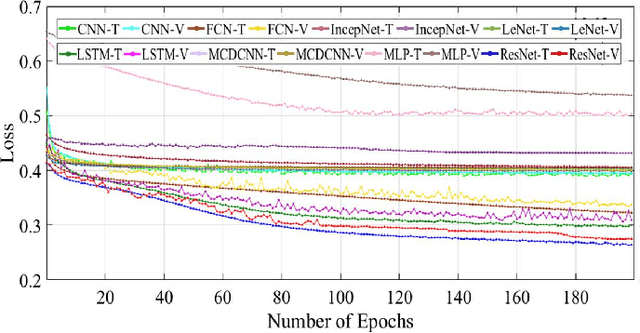
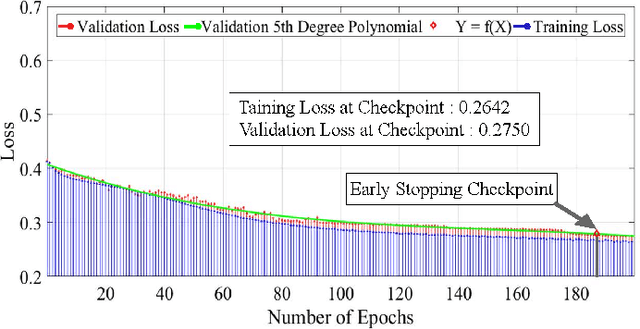
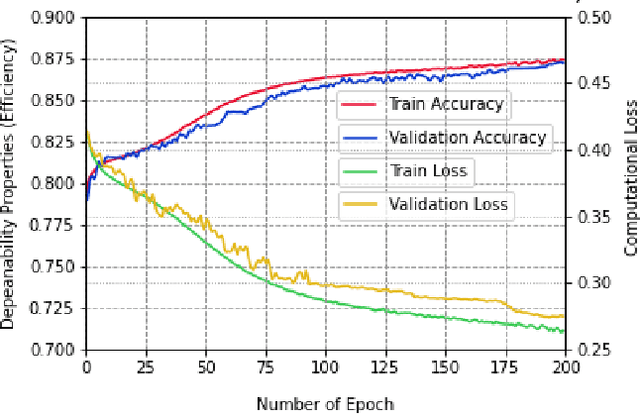
Abstract:Security concerns for IoT applications have been alarming because of their widespread use in different enterprise systems. The potential threats to these applications are constantly emerging and changing, and therefore, sophisticated and dependable defense solutions are necessary against such threats. With the rapid development of IoT networks and evolving threat types, the traditional machine learning-based IDS must update to cope with the security requirements of the current sustainable IoT environment. In recent years, deep learning, and deep transfer learning have progressed and experienced great success in different fields and have emerged as a potential solution for dependable network intrusion detection. However, new and emerging challenges have arisen related to the accuracy, efficiency, scalability, and dependability of the traditional IDS in a heterogeneous IoT setup. This manuscript proposes a deep transfer learning-based dependable IDS model that outperforms several existing approaches. The unique contributions include effective attribute selection, which is best suited to identify normal and attack scenarios for a small amount of labeled data, designing a dependable deep transfer learning-based ResNet model, and evaluating considering real-world data. To this end, a comprehensive experimental performance evaluation has been conducted. Extensive analysis and performance evaluation show that the proposed model is robust, more efficient, and has demonstrated better performance, ensuring dependability.
* 12 pages, 13 Figures, 4 tables IEEE Transaction
A Systematic Literature Review on Blockchain Enabled Federated Learning Framework for Internet of Vehicles
Mar 10, 2022
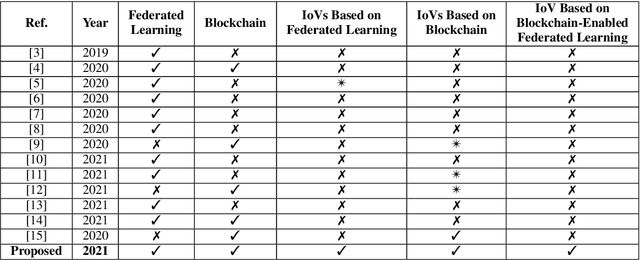
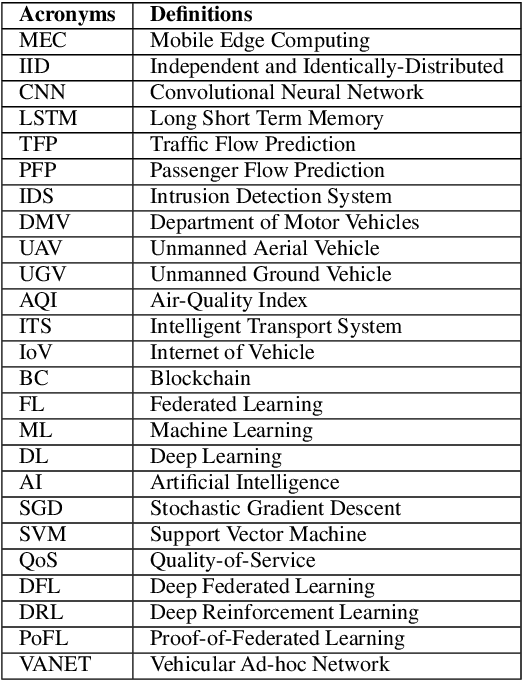
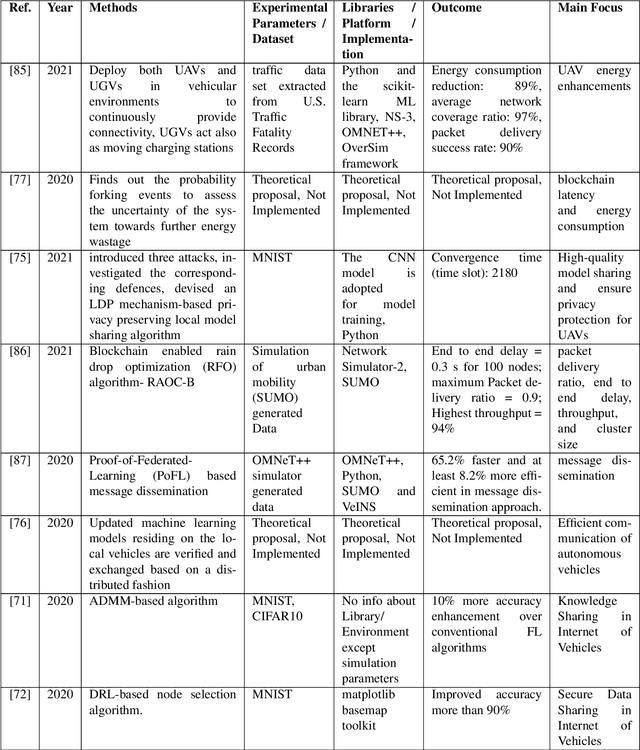
Abstract:While the convergence of Artificial Intelligence (AI) techniques with improved information technology systems ensured enormous benefits to the Internet of Vehicles (IoVs) systems, it also introduced an increased amount of security and privacy threats. To ensure the security of IoVs data, privacy preservation methodologies have gained significant attention in the literature. However, these strategies also need specific adjustments and modifications to cope with the advances in IoVs design. In the interim, Federated Learning (FL) has been proven as an emerging idea to protect IoVs data privacy and security. On the other hand, Blockchain technology is showing prominent possibilities with secured, dispersed, and auditable data recording and sharing schemes. In this paper, we present a comprehensive survey on the application and implementation of Blockchain-Enabled Federated Learning frameworks for IoVs. Besides, probable issues, challenges, solutions, and future research directions for BC-Enabled FL frameworks for IoVs are also presented. This survey can further be used as the basis for developing modern BC-Enabled FL solutions to resolve different data privacy issues and scenarios of IoVs.
FedREP: Towards Horizontal Federated Load Forecasting for Retail Energy Providers
Mar 01, 2022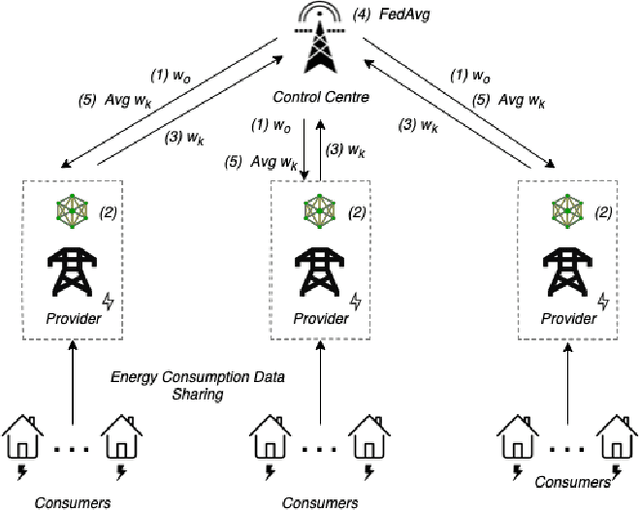

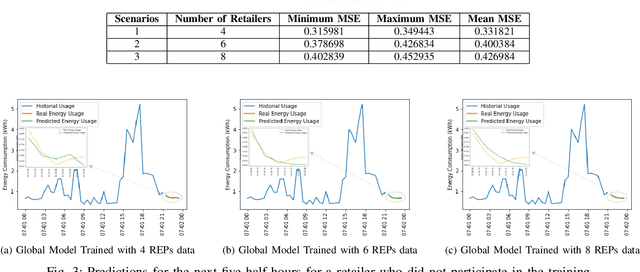
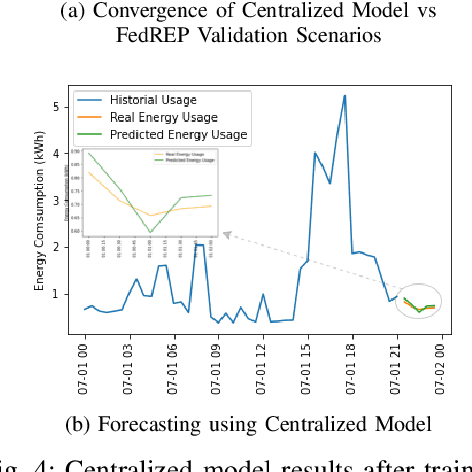
Abstract:As Smart Meters are collecting and transmitting household energy consumption data to Retail Energy Providers (REP), the main challenge is to ensure the effective use of fine-grained consumer data while ensuring data privacy. In this manuscript, we tackle this challenge for energy load consumption forecasting in regards to REPs which is essential to energy demand management, load switching and infrastructure development. Specifically, we note that existing energy load forecasting is centralized, which are not scalable and most importantly, vulnerable to data privacy threats. Besides, REPs are individual market participants and liable to ensure the privacy of their own customers. To address this issue, we propose a novel horizontal privacy-preserving federated learning framework for REPs energy load forecasting, namely FedREP. We consider a federated learning system consisting of a control centre and multiple retailers by enabling multiple REPs to build a common, robust machine learning model without sharing data, thus addressing critical issues such as data privacy, data security and scalability. For forecasting, we use a state-of-the-art Long Short-Term Memory (LSTM) neural network due to its ability to learn long term sequences of observations and promises of higher accuracy with time-series data while solving the vanishing gradient problem. Finally, we conduct extensive data-driven experiments using a real energy consumption dataset. Experimental results demonstrate that our proposed federated learning framework can achieve sufficient performance in terms of MSE ranging between 0.3 to 0.4 and is relatively similar to that of a centralized approach while preserving privacy and improving scalability.
 Add to Chrome
Add to Chrome Add to Firefox
Add to Firefox Add to Edge
Add to Edge